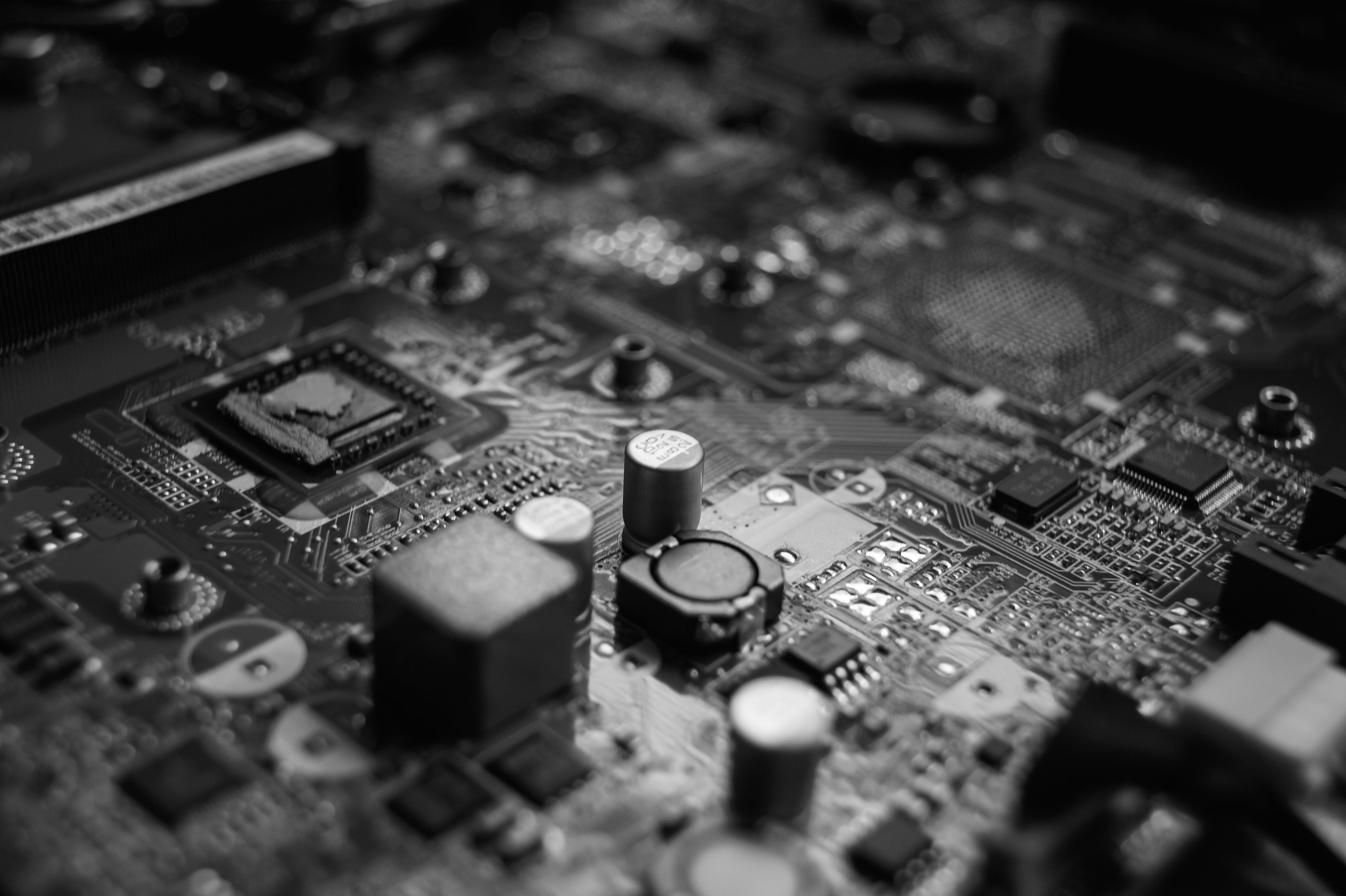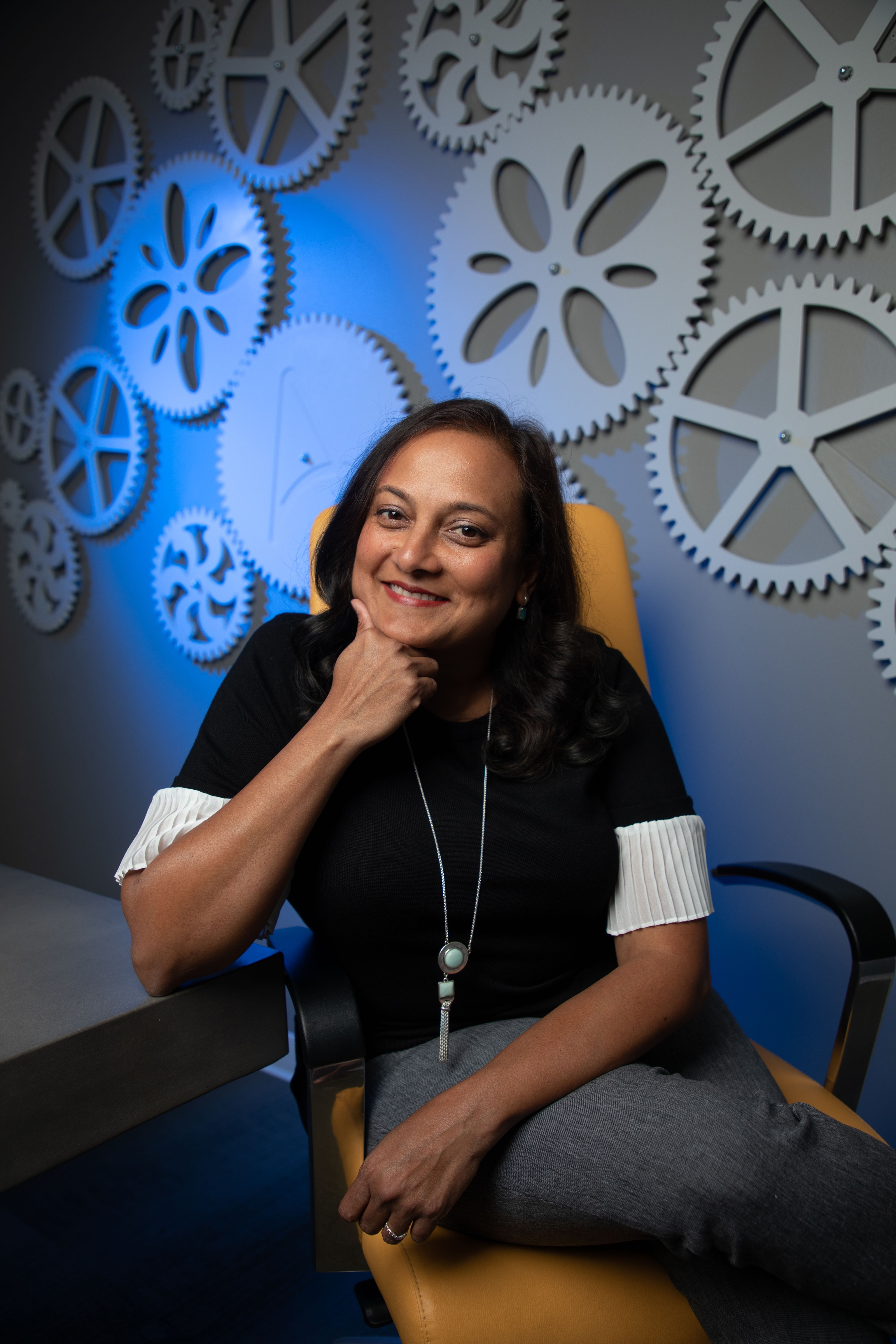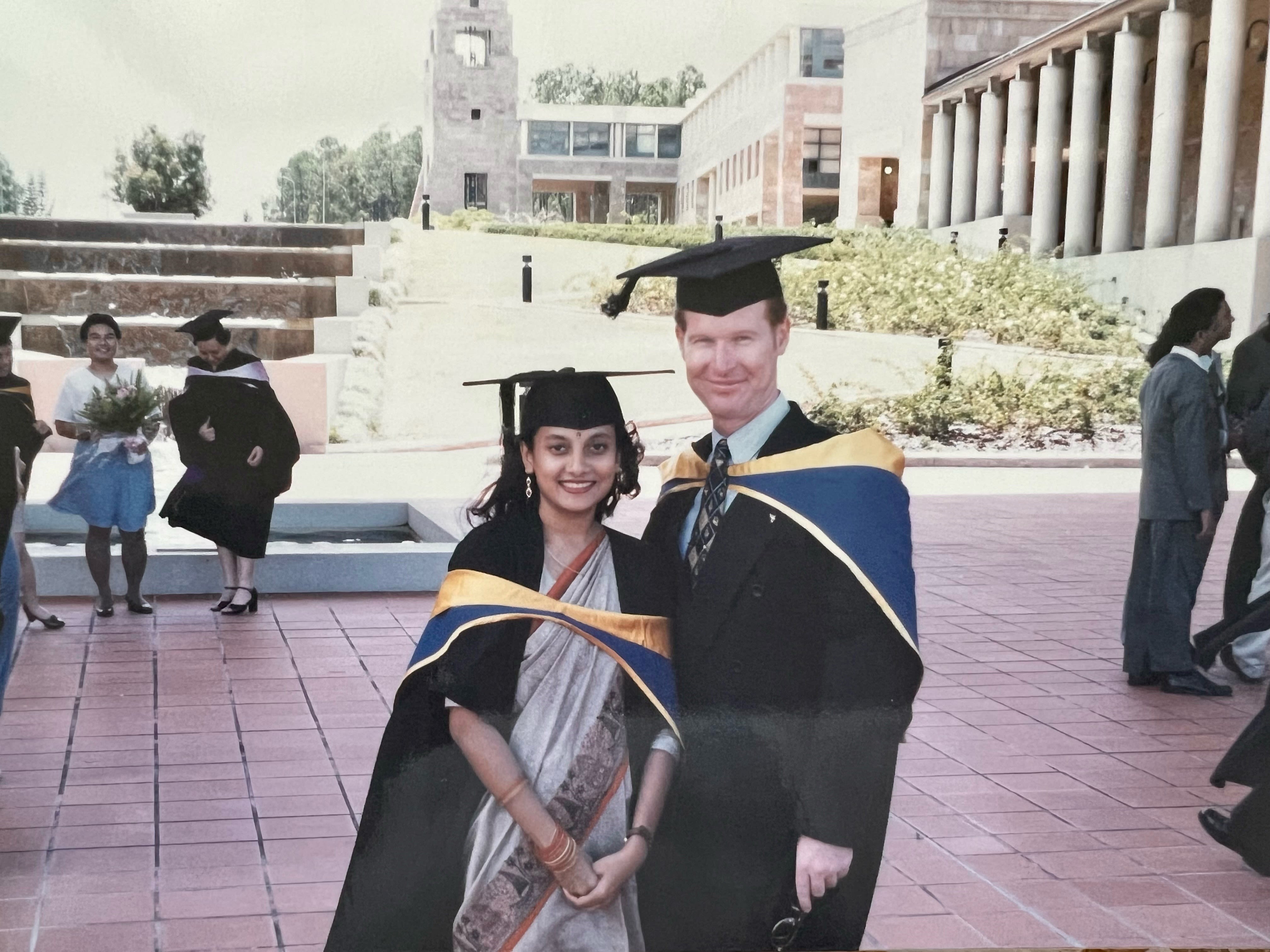Bondy to tech visionary
Neeti Mehta Shukla on using AI to transform modern work and improve lives

Neeti Mehta Shukla, Co-Founder of robotic process automation company Automation Anywhere, has helped businesses across the globe reimagine work using artificial intelligence to streamline processes.
The Bond alumna, who was awarded the University’s most prestigious Robert Stable Medal in 2023, is now helping transform lives — as well as businesses — by bringing the technology to the non-profit space. Join us for a Q&A with Neeti exploring her path from Bond student to tech visionary.
What inspired you to launch Automation Anywhere and what was the initial business problem you wanted to solve?
Having worked in many technology-dependent industries, my husband, Mihir, (CEO, Automation Anywhere) and I would often talk about the inefficiencies that limited a company’s ability to innovate and grow. Organisations were bogged down by data and employees were shackled by the manual busywork required to deal with bottlenecks and incompatible systems.
We created Robotic Process Automation (RPA) software, a new category that frees up resources, like time, money and effort, so they can invest those resources in higher-level activities like learning, being creative, solving complex problems, spending more time interacting with customers or developing their businesses.
RPA, which uses artificial intelligence (AI), allows organisations to automate their processes across all applications, anywhere, at a fraction of the cost and time of other traditional automation technologies.
How has RPA technology transformed business and people's lives, and what is a real-world example of its impact?
We helped the United Kingdom’s National Health Service (NHS), whose 1.7 million staff serve 67-plus million patients, come up with unparalleled and extraordinary responses to COVID-19.
We started in 2020 by building an accurate and reliable ‘Oxygen Bot’ in just 12 hours. It monitors oxygen flow, has saved hundreds of patient lives, and gives more than 1500 hours a year back to nurses and front office staff at Northampton General Hospital.
The NHS believes by this year, its hundreds of subsequent automations across dozens of clinical and non-clinical departments will repurpose one million hours annually.
In addition to being the Co-Founder of Automation Anywhere, you recently became Social Impact Officer. Why did you take on that role?
I believe that an area where this technology is most impactful is in the non-profit space because when they do better, all of society does better.
For example, millions of displaced people inside Ukraine are relying on small local non-government organisations (NGOs) for humanitarian assistance. NGO Step with Hope’s 100 volunteers were overwhelmed taking manual notes during urgent phone calls and too busy to spend the time required for equally crucial in-person interactions.
In its first 10 weeks of operating, the ‘Telegram for Humanity’ bot we built answered 17,500 aid requests from 14,000-plus Ukrainians. Managing up to 400 per cent more aid requests, the bot improved, expedited and scaled the NGO’s processes, giving a projected 500 hours back to volunteers for in-person assistance.
An area where this technology is most impactful is in the non-profit space because when they do better, all of society does better.
What advice would you give to aspiring entrepreneurs and business leaders, particularly women?
Business leadership and entrepreneurship are two different skill sets. We need entrepreneurs who fall in love with trying to solve the problem and always keep looking for a better solution set. We need business leaders to build the solution set and make it more economical and viable. It’s important to nurture both kinds of leadership in a business culture.
I can only share my own experience to say that for many years I fought to make peace with the chaos of work and family life. I loved them both and realised over time that I had to make peace with this feeling of juggling too many things at once. Once I did, the chaos became something I dealt with instead of fighting it.
As someone with extensive experience in RPA, what would you say to people who may be worried about their jobs amidst growing public awareness of AI language models like ChatGPT?
We believe that 95 per cent of the people on the planet will work with AI in the future. It is simply about doing more. Increasing the productivity of humans will help us make progress as a society. History has shown us that when we progress, some jobs will go away but progress also creates more jobs and more wealth.
I believe that AI has a huge upside if we do it right. Just in the last five years, more new jobs have come to light and AI is bringing forth a whole new wave of entrepreneurship.

I believe that AI has a huge upside if we do it right.

How has your education at Bond University influenced your career and success with Automation Anywhere?
I loved meeting so many new people from different countries, learned so much from them and made so many friends for life. The small class sizes allowed me to make personal connections and learn so much more. The sheer exposure to all these new ways of thinking, understanding and learning opened my mind.
I remember each one of my professors and I hope they know what a difference they have made to me. As a member of the Entrepreneurship Club, I was part of a team that represented the University and Australia at the Nasdaq Entrepreneurship competition in the United States.
I also started my first business here: Bond University branded floppy disk holders (yes, they were a thing!).
The Bond experience evolved many skills that were inside of me that I didn’t even know were there.
What are your fondest memories from your time at Bond?
I came to Bond when I was 17 years old, from India. Bond was my beautiful home away from home, where every day was an adventure, whether it was taking a campus stroll, running to submit a report due at 5pm, or hanging out at Don’s on Thursday nights. So many memories that I remember with such fondness and many friends that I hold close to my heart.

This article originally appeared in The Arch edition 27.
Original thinking direct to your inbox

Stories from Bond